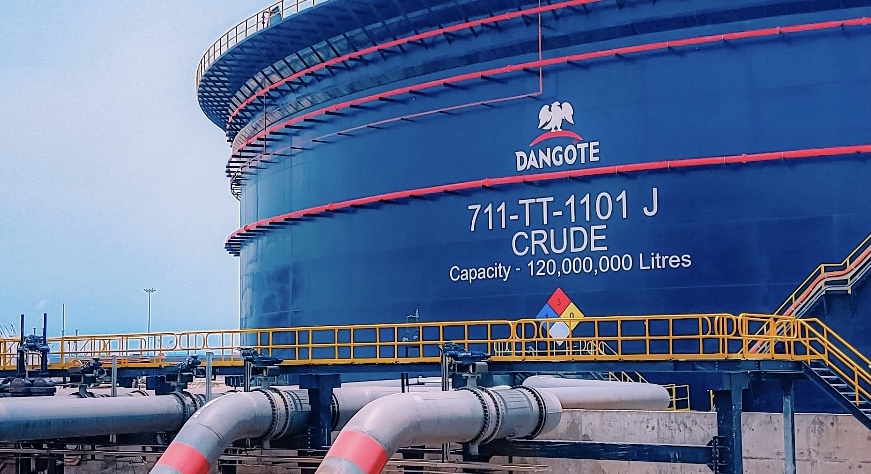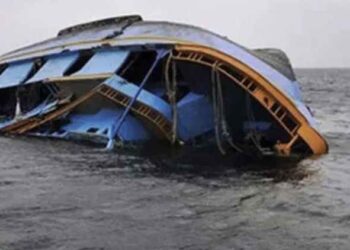Dangote Petroleum Refinery, with 650,000 barrels per day, has commenced the production of refined petroleum products.
The largest single-train refinery in the world is located in Nigeria’s commercial hub, Lagos.
It commenced production on Friday.
The development comes after the refinery received the final 6th batch of one million barrels of crude oil required by the plant for its initial operations.
THE WITNESS had reported that the company announced its readiness to kickstart production.
Recall that a month ago, the Dangote refinery received the first one million barrels of Agbami crude grade from Shell International Trading and Shipping Company Limited, one of the largest trading companies in Nigeria, as well as globally, trading in over eight million barrels of crude oil per day.
Since then, the Dangote refinery has received the crude oil in batches, and the 6th batch of one million barrels of Agbami crude was discharged on Monday at the Single Point Mooring at the Dangote Offshore Oil Terminal.
Earlier, the Managing Director of Dangote Ports Operations, Akin Omole, had told journalists at the Dangote Quay, Ibeju-Lekki, Lagos, that the refinery would be in good stead to commence operation once the six million barrels of crude had been delivered.
Omole said, “Once the six million barrels are fully delivered, it will facilitate the initial run of the refinery as well as kickstart the production of diesel, aviation fuel, and Liquefied Petroleum Gas before subsequently progressing to the production of Premium Motor Spirit.
This latest development will play a pivotal role in alleviating the fuel supply challenges faced by Nigeria and the West African countries.
Dangote Petroleum Refinery, if operational, can meet 100 per cent of Nigeria’s requirement of all refined products, gasoline, diesel, kerosene, and aviation jet, and has a surplus of each of these products for export, according to the company.
President Bola Ahmed Tinubu, in his New Year broadcast to Nigerians, hinted that the Port-Harcourt and Dangote refineries are expected to kickstart operations in January 2024.












